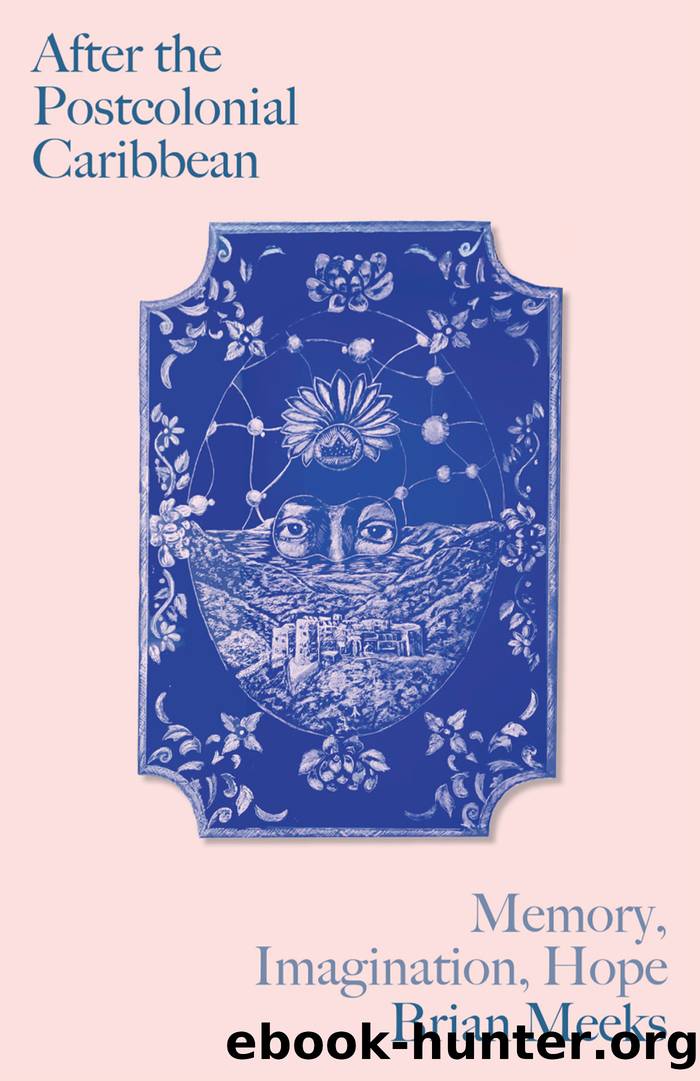After the Postcolonial Caribbean by Meeks Brian;

Author:Meeks, Brian;
Language: eng
Format: epub
Publisher: Pluto Press
HALLâS CORE
I begin by suggesting that unlike positions taken by Chris Rojek and certainly Charles Mills in his critique of Hallâs approach to race,13 and despite recognizing an evolution, particularly a shift from an earlier more Gramscian inflection to a later, more discursive approach, there is an evident and consistent14 core to Hallâs oeuvre that includes the following elements.
1. Unlike some post-Marxian perspectives, Hall continues to place critical importance on capital and of âmaterial conditionsâ generally, in the shaping of the contemporary world. Thus in his 1988 essay âThe Toad in the Garden: Thatcherism among the Theorists,â while recognizing that there is no âunivocalâ way in which class interests are expressed, Hall nonetheless underlines that âclass interest, class position, and material factors are useful, even necessary, starting points in the analysis of any ideological formation.â15 And in his 2007 interview with Colin MacCabe, Hall reminds him of the importance of the tendencies in capital to concentrate wealth and shape intellectual expression: âglobal capitalism is an incredibly dynamic system. And itâs capable of destroying one whole set of industries in order to create another set. Incredible. This is capitalism in its most global, dynamic form, but it is not all that secure. Itâs standing on the top of huge debt and financial problems. And I canât believe those problems wonât come eventually to find their political, critical, countercultural, intellectual expression. Weâre just in the bad half of the Kondratiev cycle!â16
2. Nonetheless, he discounts the mechanical notion of any direct cause-and-effect relationship between material conditions and so-called superstructural spheres. Social and cultural life, Hall has consistently argued, is not only mediated and articulated away from the âforces of production,â but particularly in the contemporary era of intensified media engagement, the internet, and the image, this autonomy is even more enhanced. âThis approach replaces the notion of fixed ideological meanings and class-ascribed ideologies with the concepts of ideological terrains of struggle and the task of ideological transformation. It is the general movement in this direction, away from an abstract general theory of ideology, and towards the more concrete analysis of how, in particular historical situations, ideas âorganize human masses, and create the terrain on which men move, acquire consciousness of their position, struggle etc.ââ17
3. Specifically, in relation to classes and organized systems of domination, he opposes the mechanical approach inherent in certain Marxisms, which assume an automatic connection, for instance, between working classes and socialist ideas, or ruling classes and ruling ideas. Hegemony, Hall insists, emerges through complex processes of articulation and interpellation:
Ideas only become effective if they do, in the end, connect with a particular constellation of social forces. In that sense, ideological struggle is part of the general social struggle for mastery and leadershipâin short for hegemony. But âhegemonyâ in Gramsciâs sense requires, not the simple escalation of a whole class to power, with its fully formed âphilosophyâ, but the process by which a historical bloc is constructed and the ascendancy of that bloc is secured. So, the way we conceptualize
Download
This site does not store any files on its server. We only index and link to content provided by other sites. Please contact the content providers to delete copyright contents if any and email us, we'll remove relevant links or contents immediately.
| Arms Control | Diplomacy |
| Security | Trades & Tariffs |
| Treaties | African |
| Asian | Australian & Oceanian |
| Canadian | Caribbean & Latin American |
| European | Middle Eastern |
| Russian & Former Soviet Union |
The Secret History by Donna Tartt(16723)
The Social Justice Warrior Handbook by Lisa De Pasquale(11506)
Thirteen Reasons Why by Jay Asher(7833)
This Is How You Lose Her by Junot Diaz(5829)
Weapons of Math Destruction by Cathy O'Neil(5080)
Zero to One by Peter Thiel(4867)
The Myth of the Strong Leader by Archie Brown(4809)
Promise Me, Dad by Joe Biden(4478)
Beartown by Fredrik Backman(4465)
How Democracies Die by Steven Levitsky & Daniel Ziblatt(4448)
Stone's Rules by Roger Stone(4438)
The Fire Next Time by James Baldwin(4373)
100 Deadly Skills by Clint Emerson(4108)
A Higher Loyalty: Truth, Lies, and Leadership by James Comey(4059)
Rise and Kill First by Ronen Bergman(4045)
The David Icke Guide to the Global Conspiracy (and how to end it) by David Icke(3913)
The Farm by Tom Rob Smith(3895)
Secrecy World by Jake Bernstein(3808)
The Doomsday Machine by Daniel Ellsberg(3758)
